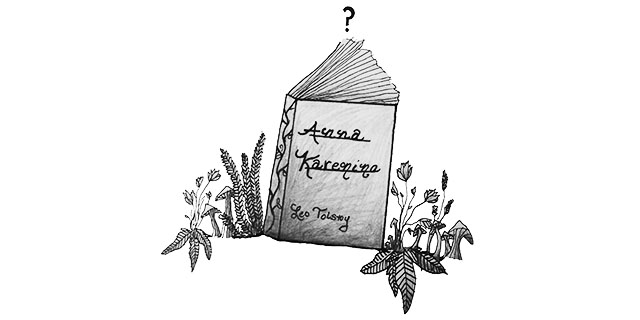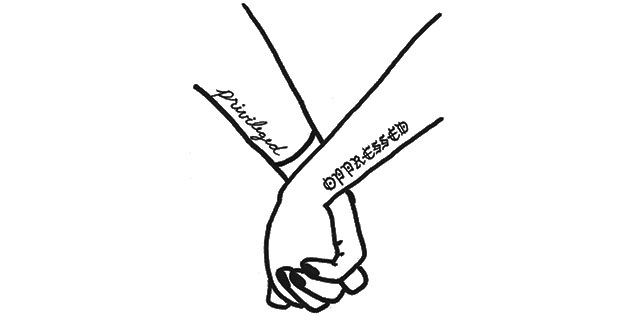
I’m taking a stand against Leo Tolstoy, but I’m not sure it’s the right thing to do. A long-deceased, widely-revered author is a formidable opponent.
I was quickly swept up in admiration for Tolstoy when I began “Anna Karenina” with English instructor Kyanh Tonnu at the beginning of the semester. I could not wait to dive into my reading each night. Tolstoy’s ability to describe female characters’ trains of thought amazed me. Tolstoy—a 60-year-old man living in 1870s Russia—captured in his writing the feelings of a teenage girl as she sees her reflection in a mirror or when she catches the attention of a crush. The book’s namesake is an adulteress, and I read the first half of the book as though Tolstoy were suggesting that Anna were a hero for rejecting the society that stifled her in a loveless marriage. His prose made me think that Tolstoy not only understood how women thought but also was compassionate toward women’s feelings.
My admiration for Tolstoy was shattered when I learned about his treatment of women in his own life. A month into our reading, a few girls presented about Tolstoy’s oppression of his wife during their marriage. When he was 34, Tolstoy married 17-year-old Sophia, and, after a few tranquil years of marriage, their relationship deteriorated. Sophia’s journal describes that Tolstoy often became enraged with his wife and forced himself on her sexually. Sophia had 13 children and journaled that breastfeeding all of them caused her nipples to bleed. Tolstoy, the abusive husband, was the same man who seemed to promote wholesome love in his literature. An example of his insensitivity toward Sophia’s feelings came during their one-week engagement when he insisted that she read his journal of erotic encounters, including losing his virginity to a prostitute at age 14 and fathering a child born one month earlier with a peasant woman. These stories devastated Sophia. The emotional brutality continued throughout their marriage, driving her to depression and suicide attempts. His seeming understanding of women in fiction did not reflect his actions in reality, a dichotomy made only more ironic by the days on end Sophia labored to copy over his drafts, reading and writing out Tolstoy’s compassionate prose while experiencing his abusive treatment.
Learning this shocked me. All the empathy I had imagined in Tolstoy disappeared. His esteem in my eyes vanished, and I now saw Anna—who was suffering for her adultery—as a victim of Tolstoy’s conservatism. I believed that Tolstoy used the book for his personal agenda of oppressing independent women. Over the following weeks, I made it my crusade in class to slam Tolstoy and celebrate Anna.
My stand against Tolstoy was challenged when co-communications director Chris Colthart—who was sitting in on our class—played the devil’s advocate in response to one of my criticisms of
Tolstoy. He asked if I shouldn’t try to separate the author from his work. He pointed out that John Lennon beat his first wife—and admitted to doing so—but sang about peace and love with the Beatles. Did that mean that he didn’t truly want peace and love, that he didn’t want to fix his flaws? And did Lennon’s hypocrisy mean we should ignore his worthy message?
This challenge has caused me to think much more deeply about my stand. I no longer revere
Tolstoy because talent should not excuse abuse of women, whether it’s emotional, physical or sexual. Yet I’ve come to understand that I can still find meaning in his work. Roland Barthes, a 20th century literary theorist, wrote in his essay “Death of the Author” that the author loses his voice in the act of writing because “it is language which speaks, not the author.” It is Tolstoy’s language which speaks to me. The clarity of thought and feeling in Tolstoy’s characters in “Anna Karenina” continue to amaze me. I’ve come to realize that although I may take a stand against an artist, I should not dismiss the impact of his or her art on me.



